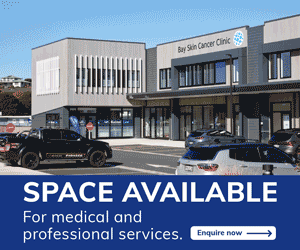As we reflect on a challenging year of rebuilding for businesses, we share our Bay of Plenty members’ cautious optimism around what 2023 will look like for business, the economy, our people and communities. The export sector continues to carry New Zealand’s prosperity “on its shoulders” and the Bay of Plenty is the vanguard of that activity, in every sense.
While we remain wary of the presence of Covid-19, we consider the impacts, both mentally and financially, that this has had on EMA members across all regions.
During our recent regional Bay of Plenty briefings, members voiced their concerns around skill shortages and access to people during the kiwifruit season, roading projects and infrastructure frustrations, including lengthy delays of the Tauriko Network Plan and Port of Tauranga expansion.
Members voiced their concerns around skill shortages and access to people during the kiwifruit season, roading projects and infrastructure frustrations, including lengthy delays of the Tauriko Network Plan and Port of Tauranga expansion.
Extracting more for these large-scale projects, or at least an equal per capita share of central Government spending, is critical as is revitalising struggling town centres. Funding is one element and that means acknowledging and using other tools to help fund infrastructure and redevelopment.
Speed remains the most critical element lacking across the region. The issues are known, but the answers are taking too long.
We are pleased to be part of a business group working with the Commissioners and Council on these issues.
Where have the people gone?
Across the Bay of Plenty business community, skill shortages and wellbeing in the modern workplace are common areas of concern. We recently undertook a Skills Shortage Survey which returned over 330 responses from 50 sectors. Over 40 per cent of respondents mentioned an inability to secure staff, even with some roles having been advertised for a year.
There exists a huge demand for goods and services from businesses in the Bay of Plenty, but the skill shortage is impacting capacity and placing pressure on existing staff. Our members have expressed their need for more assistance interacting with the new immigration system, and our partners, Malcolm Pacific Immigration, have been invaluable in that area.
We launched our People Experience Practice in February. This aims to support businesses to become great employers and people leaders by helping them invest in and retain their people. The programme provides access to an extensive resource library (co-designed by Deloitte) and delivers on-tap expertise for businesses.
EMA Learning have been committed to refining its learning solutions to help the business community grow their people. This ensures we can better handle the fundamental changes that are happening in our working world. Our team have also worked with many businesses on their talent management plans and designed tailored business programmes.
With almost 4,000 learners participating in our courses this year, learning has become one of the essential ways to fight the war on talent.
Wellbeing in the modern workplace
Alongside Auckland Business Chamber, we’ve co-developed First Steps (www.firststeps.nz). This Government-funded programme, which is now available across New Zealand, encourages business owners, managers and employees to prioritise wellbeing to ensure they continue growing and developing their businesses while living balanced, fulfilling lives.
With over 72,000 visits to the firststeps.nz website, and nearly 7,000 hours of free clinical therapy already accessed, the benefits have been rapidly highlighted by business owners.
Our nib / EMA Workplace Wellbeing Survey also underlined the importance of workplace wellbeing. The results were staggering – over 1,200 people completed the survey, and one in four reported a desire to change jobs in the next 12 months.
This sends a warning bell that businesses need to pay attention to their employees’ wellbeing or risk their own productivity and sustainability. According to many respondents, the primary cause of workplace stress was understaffing, which leads to unmanageable workloads, poor work-life balance and pressure to work longer hours.
We’ll continue navigating this post-pandemic environment with you, so we can all flourish and contribute to our country and communities. We wish everyone in the Bay of Plenty the best for the festive season, and we look forward to being in your corner in 2023.



















